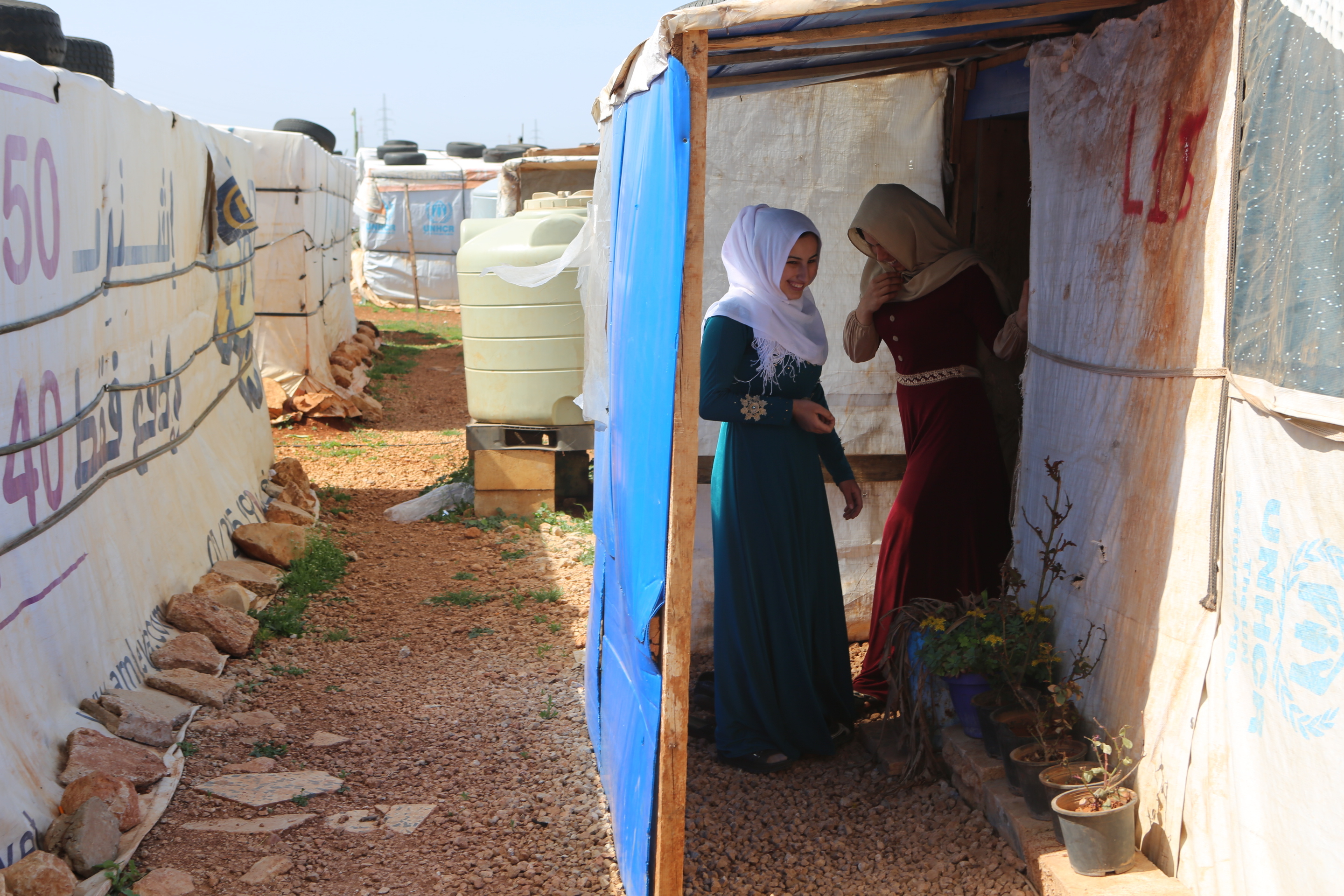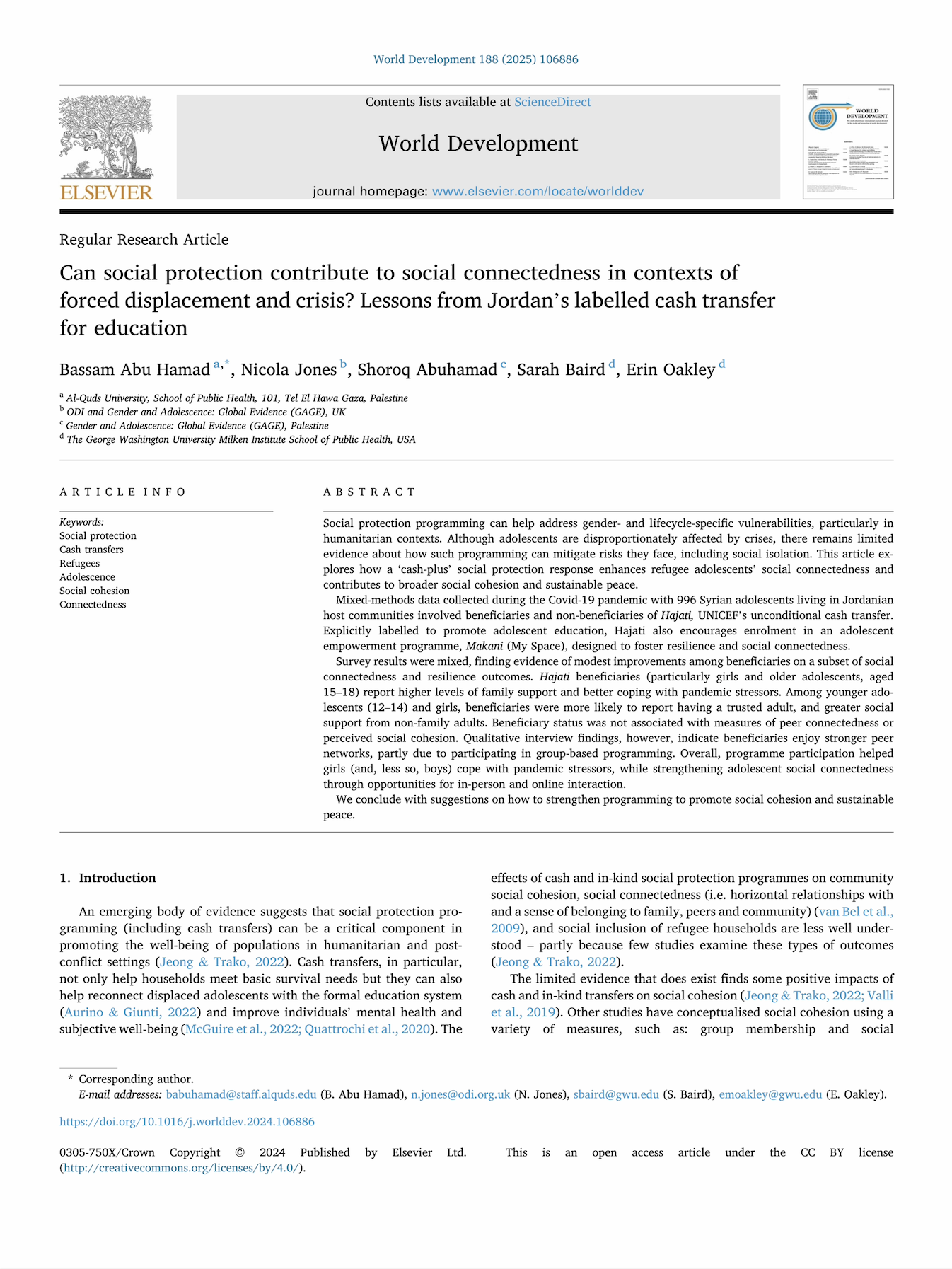
Formal and informal integration in contexts of displacement: Exploring implications for youth civic identities
publication
Formal and informal integration in contexts of displacement: Exploring implications for youth civic identities
09.02.2025 | Jordan, Lebanon, Cross-Country
Country
Jordan, Lebanon, Cross-Country
Capability domains
Voice and agency
Audience type
Researcher
Year of publication
2025
Authors
Kate Pincock, Nicola Jones, Sally Youssef, Sarah Alheiwidi
A vast number of young refugees are formally excluded from basic civil, political, and social rights in the countries where they have lived for many years, with little prospect of safe return to (and citizenship in) the places their families fled. While development policies frame youth civic participation as key to creating inclusive futures, frameworks like the Global Compact on Refugees focus on labour market integration, without reference to young people or their political subjectivities. This article draws on children’s political geographies and an intersectional approach to analyse findings from research with displaced youth in Jordan and Lebanon. Data show that although legal recognition is important, historical geopolitical dynamics, economic precarity, location, and gender significantly shape how young refugees relate to host states and navigate refugee- and nationality-based identities across and within contexts. These findings nuance understandings of young refugees’ civic identities as shaped by both interpersonal and institutional marginalization.
Suggested citation
Pincock, K., Jones, N., Youssef, S., Al Heiwidi, S. (2025) 'Formal and informal integration in contexts of displacement: Exploring implications for youth civic identities' Journal of Refugee Studies, feaf004 (https://doi.org/10.1093/jrs/feaf004)

